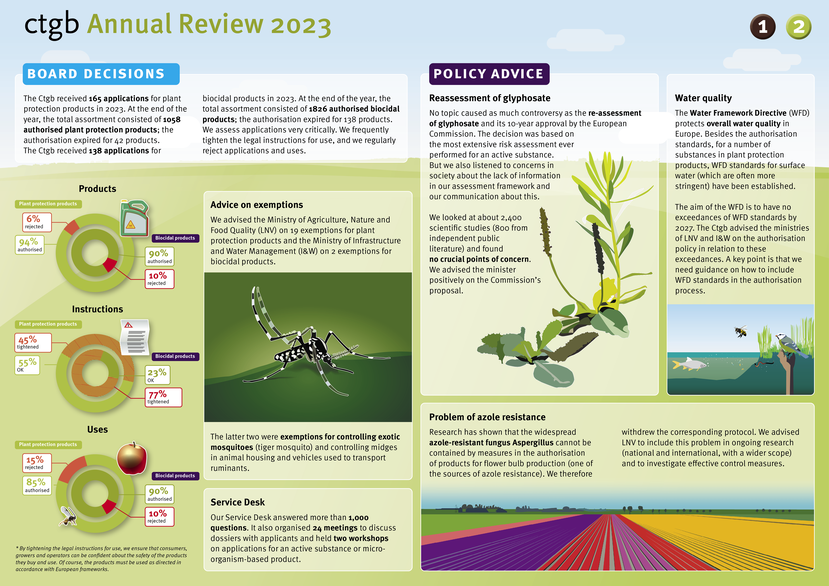Limits to growth
An inherent part of leaving a job is that you do many things for the last time. In my case, this includes writing my last column for the Ctgb newsletter. It is also a time of looking back and reflection. During my farewell at the recent Client Contact Day, many fine words were spoken and I can look back on my 21 years at the Ctgb with a very good feeling. I realise that I went through a tremendous process of development and that I was given the opportunity and space to grow towards the position of Director that I have held for the last five years.
In more than two decades, the assessment frameworks for plant protection products and biocidal products also grew and developed, possibly at an even faster pace than my professional advancement. The solid and unique basis for these current frameworks is that substances and products are approved and authorised for a limited time, which enables incorporation of recent insights and scientific developments when renewing previous authorisations or assessing new ones. In addition, new insights – as well as societal developments – have led to additional requirements and guidelines, including the bee guideline and stricter standards for endocrine disruption. As a result, the approval of some substances was not renewed. Another example is the recent ruling of the European Court of Justice, which led to a different dynamic for taking new insights and scientific developments into account.
As criteria and frameworks expanded, so did our organisation, the Ctgb. When I started in 2003, we had about 60 employees, and now we have more than 165. All these employees are essential so we can carefully assess all applications regarding the many aspects that are described in the prevailing regulations. The support staff has also expanded; it goes without saying that a growing organisation needs more staff to deal not only with personnel, financial and organisational issues, but also with the underlying ICT structures and the digital archiving of all documents. To cope with this growth, a reorganisation was carried out in 2011, and in 2015 we moved from Wageningen to the current office building in Ede. And to optimise efficiency, last year we opted for further development of the organisation – an internally focused development – with the ultimate goal of reducing turnaround times.
During this entire process, the political and societal interest in our work also grew, and more questions arose from the scientific community, NGOs and citizens. Because as the frameworks expanded and the criteria became stricter, confidence did not keep pace with these changes. This is quite remarkable. It appears to be vicious circle with no end in sight. The frameworks are growing and we know more and more, yet questions and concerns are also growing, which manifests itself as a demand for more frameworks and even stricter standards.
This leads me to wonder: are there limits to that growth? Understandably, we seek maximum security in society. Understandably, new knowledge elicits new questions. It is also understandable that applicants, manufacturers and users draw attention to the impact this has in practice. In this final column, I can only wish that we continue to search together for an acceptable balance. To achieve this, it is crucial that all parties keep talking to each other, because we can only advance if we do so together!
Ingrid Becks,
Secretary-Director


